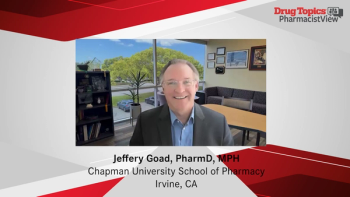
Barriers Impacting Access to Care in TRD
Panelists address factors driving clinical inertia in treatment-resistant depression.
Episodes in this series

Megan Maroney, PharmD, BCPP: What barriers impact the accessibility of treatment for patients with treatment-resistant depression?
Michael Edward Thase, MD: In my care setting, which is a Veterans Affairs medical center or a university practice, patients have access to care. Their own motivational and illness-management difficulties are the No. 1 barrier that we need to get on top of. In other care settings, patients don’t have resources, don’t have access to care, and try to make 3 or 4 phone calls but can’t find anyone to see them. Access to care is the major problem. It varies on where you practice, but well-functioning coherent care systems need to be aware. Just like we need to be aware of whose hemoglobin A1C [glycated hemoglobin] is above 6 mg/dL and whose diastolic blood pressure consistently is over 90 mmHg, we need to be aware of our system and who’s suffering with depression or anxiety, so we can make sure they have the opportunity to receive the care they deserve.
Eric Cannon, PharmD, FAMCP: In terms of barriers to care, there are physician-specific issues, which may revolve more around access to a physician than what that physician may be doing in terms of treatment. There are some real patient-specific issues as we look at the different populations. Where I am, the Hispanic population continues to grow, yet the way we approach discussions about depression is different. Culturally, sometimes we aren’t as astute as we should be to make sure patients understand the availability of treatment and options.
Finally, I worry all the time that cost is a barrier. Look at some of the products we sell on the individual exchange. They have huge deductibles, and even my adult children will call and ask, “Should I go to the doctor?” I’ll say, “Yes you should go to the doctor.” They’ll say, “But I have a deductible.” I tell them to go to the doctor. We need to communicate with patients. At the end of the day, within our system, we have mechanisms so that if you can’t afford care, we’re not going to let you die. We can and will work with you in terms of financial requirements. But together, all those things are daunting to patients who are be depressed and not familiar with the health care system.
Neil Skolnik, MD: I agree with everything you said. I think of it as energy, stigma, and access. It’s tough when you’re depressed and not getting better. Now your primary care doctor has run out of options and is sending you somewhere else. It takes a lot of energy to follow through on that, to make that phone call, to get that appointment, to go there. It’s tough. One [barrier] is energy; another is stigma. Often patients are more receptive to receiving depression treatment from me than “seeing a psychiatrist.” I’m putting it in quotes because that’s how some patients feel about it. It shouldn’t be that way, but it’s still a barrier. Access includes into cost, but also, it’s hard to get in to see someone. For young adults and teenagers, there aren’t enough child psychiatrists, but even among adults, depending on your insurance or lack of insurance, it can be hard to find a psychiatrist with readily available appointments.
Michael Edward Thase, MD: In the STAR*D trial, at each of treatment level there was a 10% to 20% chance that if the treatment of that level didn’t work for 1 of our participants, he or she would fade away from the process. We have 4 treatment levels. We lost 40% of our patients along the way because their treatment didn’t work and we weren’t able to engage them to stay in the collaboration. We know from other data sets that if you drop out of treatment, you’re less likely to get better than if you stay in treatment. Treatment works. It doesn’t work as well as we’d like it to and as often as we want it to, but it’s better to be in treatment with this illness than to go untreated.
Megan Maroney, PharmD, BCPP: Mr Cannon, how can payers or providers better support-outcome measures for depression to prevent clinical inertia?
Eric Cannon, PharmD, FAMCP: If you look at clinical inertia, a lot of things may tie into why treatment stalled. Why did we make progress—maybe 50%—yet we didn’t get to the finish line in getting that patient well? Some of that is access to providers. Within our system, within our plan, a group of individuals have access to scheduling software with physicians. Dr Skolnik talked about [patients who has] tried antidepressants but aren’t comfortable going to that next step, and he recommends that this patient sees a psychiatrist. If a patient calls a psychiatrist’s office, especially in our area, they might be told that the only appointments are 3 or 4 months out. Our advocates group has access to scheduling. We can say, “My physician wants me to see a psychiatrist.” We can immediately see, while they’re on the phone, who has appointments and get patients in.
The clinical inertia piece that worries me is if a patient gets treated and they get that 50% response. They don’t want to admit that they’re not feeling better, but then the physician thinks they’re doing better. They continue to refill a prescription, and that patient goes on.I liked Dr Thase talking about PHQ-9 [Patient Health Questionaire-9] and how he sends out a fillable form. Those things really prevent clinical inertia. Even within our medical records, you may be seeing a clinician, but if you end up in the emergency department, all that information about your depression is there. They can do a PHQ-9 in the emergency department and see how it compares with what was done in clinic 6 months ago.
Michael Edward Thase, MD: Eric, you work in an enlightened system where you have someone watching who has openings and facilitating what happens. Sometimes I get a call from a frustrated patient who’s made 4 or 5 calls, and I have to make the next 2 or 3 to try to get them in to see someone. Access to care is 1 area that we have to keep working on.
Transcript edited for clarity.
Newsletter
Pharmacy practice is always changing. Stay ahead of the curve with the Drug Topics newsletter and get the latest drug information, industry trends, and patient care tips.























